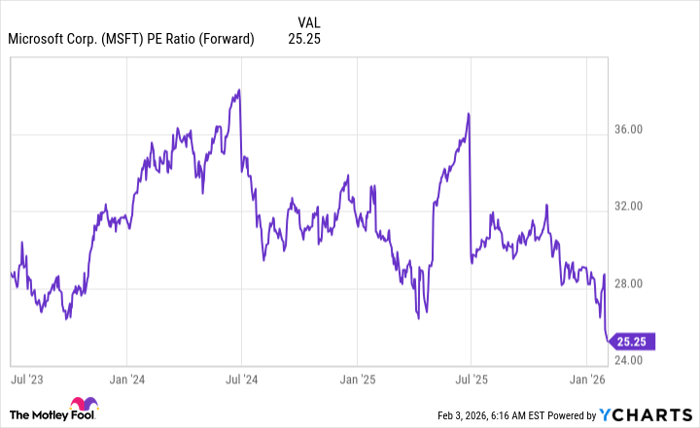Nvidia Faces Historic Stock Drop Amid Rising Competition in AI
Nvidia (NASDAQ: NVDA) made stock market history on Monday, Jan. 27, but not the kind any investor would want. The chipmaker experienced a staggering 17% drop in share price, fueled by rising concerns over a new artificial intelligence (AI) model from the Chinese startup DeepSeek. This decline wiped out $589 billion of Nvidia’s market value, marking the largest single-day loss for any company in history.
What Caused Nvidia’s Share Price Collapse?
The trigger for this drastic sell-off? Even with strict U.S. regulations preventing Nvidia from exporting its top-tier AI chips to China, DeepSeek claims to have developed a large language model that competes with some of the most advanced models in the U.S. They assert that they trained this model at a significantly lower cost and without relying on Nvidia’s most powerful chips.
Where to invest $1,000 right now? Our analyst team just revealed what they believe are the 10 best stocks to buy right now. See the 10 stocks »
DeepSeek’s R1 Model Outperforming Expectations
DeepSeek published a research paper last week arguing that its R1 reasoning model competes closely with OpenAI’s o1 problem-solving model on various benchmarks. According to the startup, it spent under $6 million to train R1 using only 2,048 Nvidia H800 graphics processing units (GPUs), which were specifically designed to adhere to export controls.
For comparison, OpenAI reportedly spent over $100 million to train its GPT-4 model, utilizing the more robust Nvidia H100 GPUs, with estimates suggesting over 10,000 processors were used. To provide further context, Meta Platforms trained its Llama 3 model using 16,000 Nvidia H100s, which came at an estimated cost of $60 million.
The potential implications are concerning for Nvidia. If DeepSeek’s approach allows for effective training with fewer and less powerful chips, it could prompt U.S. companies to rethink their spending on Nvidia GPUs. Companies like Amazon, Alphabet, Meta Platforms, and Microsoft might reduce their GPU expenditures as a result.

Image source: Getty Images.
Possible Positive Outcomes for Nvidia Investors
Despite DeepSeek’s efficient training methods, many analysts are optimistic. They believe this breakthrough could hasten AI adoption and increase demand for Nvidia GPUs. Furthermore, some experts are skeptical of the validity of DeepSeek’s claims about costs and the training process.
- Alexandr Wang, CEO of Scale AI, suspects DeepSeek has access to 50,000 Nvidia H100 GPUs but did not disclose this in its research due to export regulations. If this is true, the costs associated with model training may have been underestimated.
- Brian Colello from Morningstar maintained his target price of $130 per share for Nvidia, highlighting that leading cloud vendors are likely to continue investing in AI. He noted, “We doubt the leading cloud vendors and AI builders will pause their plans.”
- Dan Ives from Wedbush Securities criticized the market’s reaction, stating it was “way wrong.” Based on talks with around 25 tech firms, he believes U.S. AI spending remains stable. He views the drop as a significant buying opportunity, setting a target price of $175 per share.
- Patrick Moorhead from Moor Insights & Strategy predicts ongoing demand for Nvidia GPUs until we achieve artificial general intelligence (AGI). He sees DeepSeek’s cost-saving methods as a catalyst for faster AI adoption.
- Stacy Rasgon at Bernstein agrees that DeepSeek may have underestimated training costs but appreciates the efficient methods. He referred to the Jevons Paradox, which suggests that reduced costs for new technology increase demand. Bernstein’s target for Nvidia remains $175 per share.
- Tom Lee at Fundstrat Global Advisors thinks the stock’s decline mirrors the overreactions seen during COVID-19 and calls it a promising buying opportunity.
Investors should keep an eye on the situation, as it is changing rapidly. Financial results from Meta Platforms and Microsoft are forthcoming on Jan. 29, followed by Alphabet and Amazon on Feb. 4. Insights from these earnings calls may provide more clarity.
However, many analysts contend that DeepSeek’s advancements are unlikely to affect long-term demand for Nvidia GPUs. Hence, while the recent news has shaken shareholders, it also means Nvidia’s stock price is significantly lower than it was the week before, offering a compelling opportunity for potential investors.
Currently, 39 analysts monitor Nvidia, and the average target price stands at $177 per share, suggesting a possible 50% increase from its current price of $118.
Is Now the Right Time to Invest in Nvidia?
Before making a decision, take this into account:
The Motley Fool Stock Advisor analyst team has highlighted what they believe are the 10 best stocks to invest in right now… and Nvidia is not included. The selected stocks are poised for substantial returns in the future.
For perspective, if you had invested $1,000 in Nvidia when it made the advisory list on April 15, 2005, that investment would now be valued at $725,740!*
Stock Advisor provides investors with a straightforward strategy for success, offering guidance for building a portfolio, regular updates from analysts, and two new stock picks each month. Since 2002, the Stock Advisor service has generated returns that exceed those of the S&P 500 by more than four times.*
Learn more »
*Stock Advisor returns as of January 27, 2025
Suzanne Frey, an executive at Alphabet, is a member of The Motley Fool’s board of directors. John Mackey, former CEO of Whole Foods Market, an Amazon subsidiary, is a member of The Motley Fool’s board of directors. Randi Zuckerberg, a former director of market development and spokeswoman for Facebook and sister to Meta Platforms CEO Mark Zuckerberg, is a member of The Motley Fool’s board of directors. Trevor Jennewine has positions in Amazon and Nvidia. The Motley Fool has positions in and recommends Alphabet, Amazon, Meta Platforms, Microsoft, and Nvidia. The Motley Fool recommends the following options: long January 2026 $395 calls on Microsoft and short January 2026 $405 calls on Microsoft. The Motley Fool has a disclosure policy.
The views and opinions expressed herein are the views and opinions of the author and do not necessarily reflect those of Nasdaq, Inc.








